- Home
- Warhammer 40K
The Buried Dagger - James Swallow Page 13
The Buried Dagger - James Swallow Read online
Page 13
Indeed, there were stories of some great vessels that had sailed the void for hundreds of years, and never once had their Navigators ventured outside their sanctum. Power, communication and utility conduits would feed the needs of those within, and in return they would do as they were commanded. With their third eye open, the Navigators would guide the way from star to star. Without them and their preternatural psychic gifts, any semblance of a galaxy-spanning Imperium of Man would be an impossibility.
Mortarion understood the disgusting irony of that. They were tools, he reminded himself, just like the psyker-choirs of the astropathic communicators. Tools, like the monster he kept chained up in the bowels of his command shuttle.
He dismissed the thought as his gaze found butchered parts of the Navigators from the Terminus Est still lying where Typhon’s Grave Wardens had deposited them, before the iris gateway that connected the ship to the violated sanctum chamber. His thin lips curled. Such a display might have been left behind on some planet requiring compliance as a warning to others, but here on the First Captain’s own flagship it seemed crass and needless.
The warrior Vioss stood guard outside the interleaved hatch, and his manner stiffened at the primarch’s approach. He saluted, but made no immediate move to step aside. ‘My lord. Captain Typhon is engaged within the sphere. He bid me to have no others enter.’
Mortarion said nothing and merely gazed levelly at Vioss, until the Grave Warden came to the conclusion that was correct of his own accord. The Reaper of Men was not subject to any such strictures.
Vioss reluctantly stepped away and Mortarion reached for the hatch control, but Typhon’s man had something more to add. ‘My lord, the Deathshroud should not accompany you inside.’
Mortarion’s bodyguards bristled at the words, but the primarch raised his hand to halt them. ‘Agreed.’ He steeled himself for what would greet him within, fighting back a wave of loathing. ‘No more of us need be exposed than necessary.’ He did not need to add that his praetorians had standing orders in such circumstances: if Mortarion did not transmit to them a certain tone code on his vox every seven minutes, they would storm the chamber and kill whomever they found within.
The iris hatch parted to allow the primarch inside the sanctum, and he stepped into the same bright, smothering light that had met him from the warp.
The interior of the sanctum orb was a riot of colours and shapes. Guide ropes and bannisters ran around the space in patterns that resembled mathematical fractals, and a false sky filled with hundreds of hololithic panes hung about in the still, refrigerated air. As Mortarion advanced to the middle of the chamber, his boots crunched on patches of rust-red hoar frost and the odour of cold blood reached his nostrils.
He saw a construct holding up numerous heavily upholstered couches, a thing built of brassy armatures, flickering lens hoops and click-ticking clockwork. All the couches save two were unoccupied. The figures reclining on them barely fit on the human-scaled furniture. They were legionaries – a pair of the First Captain’s so-called ‘specialists’ – and Typhon himself stood between them still clad in his Cataphractii war-plate. They had their backs to the primarch, but he could clearly see the arcane rites they were enacting. Waxy, terminal light leached out of the curved walls in serpentine coils, spiralling down to touch the warriors upon the brow. Had a Navigator stood in their place, the psyker’s third eye would have been open and burning bright.
Bright enough to drive a soul from the body, so the warnings went.
Mortarion’s aversion to the process he was witnessing finally broke its banks and he bellowed out the First Captain’s name. Typhon flinched and lost his connection to the psychic metaconcert, staggering a step before he regathered himself.
‘You… should not have come in here.’ Typhon turned his face away, and Mortarion thought he saw his old friend wipe something black and oily from his eyes. ‘I have things… in hand…’
‘What is this?’ Mortarion ached to pull Silence from its mag-plate upon his back and swing the scythe into all this witch-machinery, but he stamped down on the violent impulse. ‘Where are you taking us, Typhon? What have I agreed to?’
‘What I do is for the good of our Legion and the ultimate victory of the Warmaster,’ said the First Captain, stepping down from the elevated platform. He glanced back at the two warriors still in the depths of their psionic trance, and gestured. ‘I know your enmity for these rites. But it must be done.’ He paused, marshalling himself. Typhon’s sallow face seemed even paler than usual. ‘You won’t want to hear me say this, but know the truth of my words. There have always been psykers within the ranks of the Death Guard, brother. You know it and I know it. Even before the Edict of Nikaea suspended them from active service in the Legions, you kept them out of our ranks… Or so it seemed.’
Mortarion bristled, but said nothing. There were some things he had turned a blind eye to, that was so. Now Typhon spoke openly of them, breaking the taboo.
‘I kept the gifted out of your way. I taught them to hide their talents. A handful, out of a Legion of hundreds of thousands. Surely you knew? Surely you wondered what they were for?’
‘I trusted you to keep such things in check,’ snarled the primarch. ‘I assumed your… affinity… with the warp would be enough.’
‘It is.’ Typhon nodded to himself, as if accepting a truth. ‘And now they play their part.’ He nodded at the psyker-legionaries once again. ‘These are brothers of the Librarius in all but name. Now is their time to serve, in our deliverance.’
There was an emphasis on the First Captain’s words that troubled Mortarion. ‘Speak without artifice, brother,’ he demanded. ‘My patience grows short, and if you continue to hide things from me, I will kill you for it.’ At length, he pulled his war-scythe to his hand. ‘Must I do so? Was I wrong to offer you my hand back on Ynyx? Are you still–?’
‘Loyal?’ Typhon spat the word back at him, jaundiced colour rising in his cheeks. ‘How can you ask me that, Mortarion? Who has been more loyal to you in all the decades than I?’ He shook his head. ‘You gave me my life that night in the valley, by throwing away everything you had ever known. How else could I ever repay that but through the greatest dedication to you?’ Typhon’s eyes shone brightly. ‘I do this for you, brother. I do it for all of us.’
‘And how does it better our Legion to plunge headlong towards nothingness?’ Mortarion aimed the head of Silence at the hololith panes, upon them a spiralling, meaningless tide of datum from the warship’s addled scry-sensors. ‘I put my trust in you when others would not have done so. Tell me how it will be rewarded.’
‘With strength.’ Typhon climbed down and stood before his liege lord. ‘That is the one thing we have always craved, is it not? To be eternally strong, unstoppable, undying. To expunge all trace of weakness from ourselves forever.’ Before Mortarion could frame a reply, Typhon went on, with the passion of a zealot. ‘We cannot turn back now! We are committed, don’t you see? Brother, we are close to the end of the road that you and I started down a long time ago. A pathway from the blighted lands of Barbarus to a great rebirth. It is fated.’
For a moment, the primarch thought he heard the faint buzz of insects beneath the strident snarl of his First Captain’s fervent words. ‘I do not believe in fates,’ he growled in return. ‘I have told you before, I hold no stock in the numinous.’
‘No?’ There was a sudden slyness to the other warrior’s tone, as if he had caught the primarch in a lie. ‘Oh, you may hate and despise what lives beyond the veil, my old friend, but you cannot claim it does not exist. You have seen it…’ Typhon looked down at his gauntlet, flexing the metal. ‘Even turned it to your will, for a time. Chained it.’
Mortarion’s breath held in his throat. ‘What do you know of that?’ He recalled the conversation over Terathalion. He could count on the fingers of one hand those who knew of the exchange he’d had with the daemon c
aptured there, and Calas Typhon did not number among them.
‘You have looked the warp in the eye,’ Typhon offered. ‘More than once. And each time, you sought something and did not find it.’ He slammed the flat of his hand against his chest-plate. ‘I have found it!’ He nodded towards the hololiths and the curve of the walls beyond them. ‘Illumination.’
Mortarion’s first impulse was to justify his study of the daemonology as a war-time necessity, but the words soured in his mouth. To speak them, he would only echo what Typhon had said moments before. The thought warred with another, deeper concern. How far has my brother gone into this miasma?
Typhon removed something from a pouch on his belt and toyed with two battered metal shapes in the palm of his wide hand – a pair of shallow steel drinking vessels, old and careworn with use. He held them up so Mortarion could see clearly.
The primarch remembered. He had drunk from one of those half-tankards, a lifetime ago, under black-orange skies and acid rains.
‘We are facing our greatest test, old friend,’ said Typhon. ‘Everything else has led us here. Every battle we fought through, every conflict we have survived, every wound made a scar. All that the Death Guard have endured has been to prepare us for this moment. To face the most lethal trial… And these are the cups from which we’ll drink.’
For a moment, Mortarion thought he could see an ink-dark and oily fluid swirling in the shadows of the battered tankards.
The tradition of the Cups dated back to the first foundation of the Death Guard, in the days when they had been only men, when their bodies had been hardened against the toxins of Barbarus. Now, there was no venom so powerful that the invincible, ever-hardy legionaries of the Death Guard could not resist it.
Mortarion himself had cemented this custom. He would select a warrior in the aftermath of every battle and share with that man a draught of blended toxins. They would drink and they would live, strengthening the unbreakable power of the Legion they embodied. Against Death, they would say, and prove it by their endurance.
‘We will survive this poison,’ Typhon told him. ‘Fate wills it, whether you believe in it or not.’
Mortarion heard the buzzing drone beneath the words again, and despite the primarch’s iron self-control, he felt his flesh crawl with sudden ill ease. ‘What poison?’ he whispered, a sharp sense of dread filling him at the thought of the answer to his question.
Three
White Mountain
Falsehoods
Chorus
Once upon an age, the White Mountain might have been known by that name because it was capped by virgin snow, but if so, that era was lost to antiquity. Now, the broad blade-tip peak was grey-silver from the ash fall that settled from the biting polar winds and moved in scudding dunes across the lifeless landscape. The old, dead cinders found their way into anything left beyond the great static-webs shrouding the mountain approaches, and each time Garviel Loken ventured up to the vantages in the highest caves, he would track a dusty line of them back with him on his return.
He let himself get lost in the view from the cavern mouth, his gaze slipping focus until the flatlands beyond became an endless pale forever that he could see without seeing. The radlands were a dreadful place, if one took them literally, a wasteland left behind after a catastrophic ecocidal war that would have – if it had been left to continue – destroyed all life on Terra, or ‘Earth’ as it had been known in the Dark Age of Technology. The being who ended that war was not the Emperor of Mankind, or at least, he was not at the time, but his legacy remained in this place. The White Mountain had been the lair of that old war’s most brutal champion. She had been dead and dust for thousands of years now, but her fortress-palace had been repurposed for other needs and it still served them in good order.
It was tranquil here, in its own desolate way. Nothing lived outside, and within, every one of the mountain’s laser-cut corridors and domed inner chambers was lined with sense-deadening metals. The deeper one ventured inside, the more robust the effect of the phase-iron plates and counter-psionic wards. At the inmost core levels, the stillness was so absolute and unsettling that Loken had been unable to remain there for more than a few hours. It was the absence of everything, from the smallest sound to the most distant whisper of psychic wind.
Down there was a giant metaphasic cage they had built to imprison Magnus the Red, crafted to the Emperor’s own designs, but few believed they would ever have the occasion to use it. Like the White Mountain itself, the cage was something forged in spite of the inevitable, a reserve, a backup plan in case other, better schemes failed.
When he first arrived here, Loken wondered why the Sigillite had sent him. Any one of the Knights-Errant could have been tasked with the investigation into the recoveries, as they had come to be known. Was it another test? On some level, he knew it had to be. Malcador, Dorn and others had never truly trusted him since he had been found, gripped by madness, on Isstvan III. And in truth, there was still a part of Loken that agreed with them.
Was it a punishment? He had failed in his last mission to board the Vengeful Spirit and terminate his gene-father and primarch, the Warmaster Horus Lupercal. Good men had perished there, others scarred and barely able to escape with their lives. For Loken, it was a shameful frustration that haunted him. He had squandered his chance at cutting off the serpent’s head, and the inner conflict that ran through him in those charged moments still burned like fire. Would that opportunity ever come again? Over and over, he castigated himself with the knowledge that it would not.
But as time passed, he thought of the duty differently. The assignment to the White Mountain was not truly a test, not really a punishment. It was a gift.
In the silence of the endless dark halls, where errant thought and turbulent emotion themselves were deadened by arcane anti-psyker mechanisms and contra-telepathic barriers, Loken rediscovered something like peace. It was fleeting, he knew that, but it centred him. The whispers of insanity that had plagued Loken’s mind in the past, that manifested in the voices of his former comrade Torgaddon, the ghost of old Iacton or the snarls of his lost self Cerberus… they stayed away. For while Loken’s physical injuries from the assault on the Vengeful Spirit were nothing compared to those sustained by Macer Varren, Tylos Rubio or poor Ares Voitek, the wounds to his spirit and his will were grave. In the tranquillity of the White Mountain, those things found a place to be healed.
Loken heard footsteps coming up the stairs carved into the rock, but did not turn. He had come to know the distinctive pattern of Teledion Brell’s boots across the stone, the way she would sometimes half drag her right leg where its bionic joint shifted slightly out of synch with the rest of the organic limb. She was moving quickly. Something had agitated the scientician, enough that she was willing to break protocol and approach him outside of their normal schedule.
‘Brell,’ he said, by way of greeting, eschewing any preamble. ‘Do you have something new for me?’
‘Work proceeds with the intake,’ she puffed, coming to a halt at his side. The woman was tall for a human, almost as tall as a Space Marine, but spindle-thin with it. Born of low-grav Hyperionite stock from the Saturnian Satellites, Brell had a bone density so thin that she would collapse under her own weight in a Terran-standard-G environment. Age of Strife tech devices that projected a counteracting field around her body allowed her to move normally on other worlds, but to Loken she seemed like a bird with clipped wings, always on the verge of taking flight but never able. Vapour from her breath coiled in the air as she spoke, the words a rapid-fire chatter more akin to a datum download than a conversation. ‘Each day the cogitator engines form new combinations of the words and sound elements. I feel as if we are on the verge of a great insight, if only we could force the recoveries into some sort of coherence.’
‘Force them,’ he echoed. ‘I’ve told you before how I feel about that. Deliberately inducing pain or o
ther hardships will not be permitted.’
‘That may be what is required–’ countered Brell, but Loken spoke over her.
‘I have not been unclear.’ This discussion, or something very much like it, was one he and the scientician had gone through on many occasions, and the Knight-Errant was tired of it. ‘Remember who these people are. Respect them.’
‘I do, I have, I do,’ Brell said quickly, ‘but they are not who they once were, Ser Loken. Surely you see that? Your compassion is laudable, but misplaced. Their minds are broken beyond repair.’
‘That too was once said of me,’ he replied firmly, and the thought occurred that Loken’s own voyage into the loss of self and back again might have been behind Malcador’s choice of him for this mission.
Brell briefly went quiet, as she was wont to do when she was unwilling to concede a point. Then with an exaggerated shrug, she offered him a look at the data-slate in her long-fingered hands. ‘Perhaps the addition of a new information vector will alter our perception of the chorus’ purpose.’
The slate showed the approach clearance authorisation for a shuttlecraft, and Loken took it in, before turning back to the view of the wilderness to search the stark skies above.
Yes. There it is. He saw a fast-moving dart streaking in from the south-west, dropping low as it angled towards one of the White Mountain’s lower landing maws.
‘Another recovery,’ Brell explained. ‘In good condition and exhibiting encouraging clarity, so it seems.’ Loken didn’t like the way she seemed almost eager to get her hands on the new arrival. ‘I thought you would want to know. But I can deal with the induction and preliminary processing if you are…’ She drifted off, then gestured at the desolate view. ‘Otherwise engaged.’

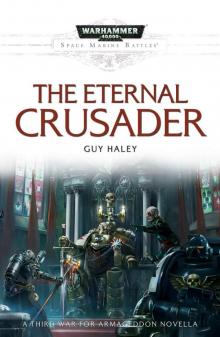 The Eternal Crusader - Guy Haley
The Eternal Crusader - Guy Haley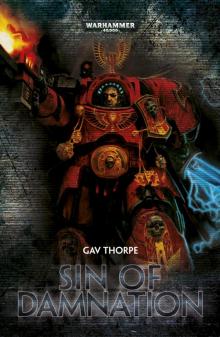 Sin of Damnation - Gav Thorpe
Sin of Damnation - Gav Thorpe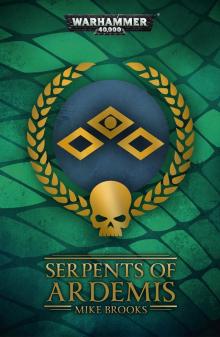 Serpents of Ardemis - Mike Brooks
Serpents of Ardemis - Mike Brooks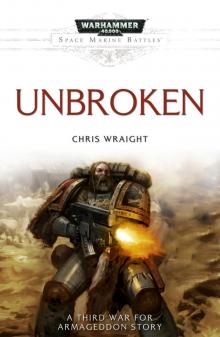 Unbroken - Chris Wraight
Unbroken - Chris Wraight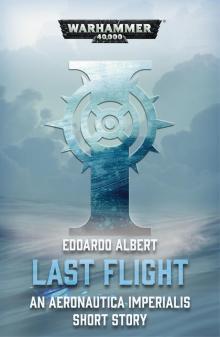 Last Flight - Edoardo Albert
Last Flight - Edoardo Albert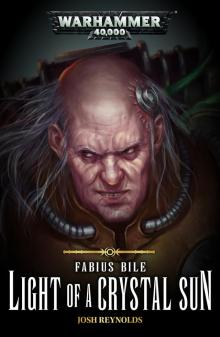 Light of a Crystal Sun - Josh Reynolds
Light of a Crystal Sun - Josh Reynolds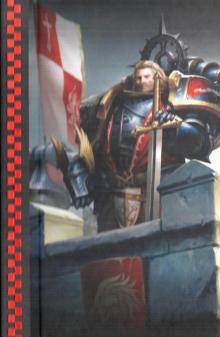 Lion El'Jonson- Lord of the First - David Guymer
Lion El'Jonson- Lord of the First - David Guymer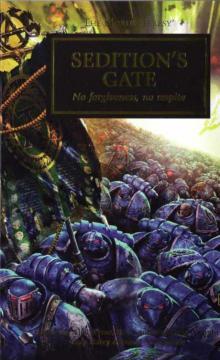 Sedition's Gate - Nick Kyme & Chris Wraight
Sedition's Gate - Nick Kyme & Chris Wraight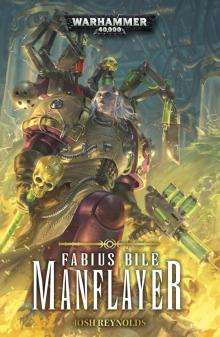 Manflayer - Josh Reynolds
Manflayer - Josh Reynolds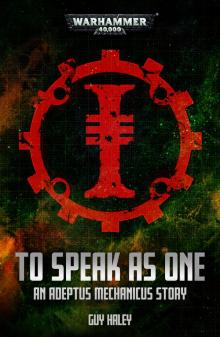 To Speak as One - Guy Haley
To Speak as One - Guy Haley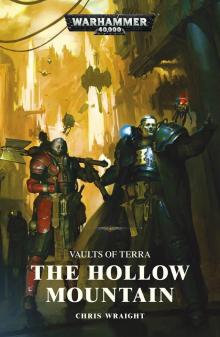 Vaults of Terra- The Hollow Mountain - Chris Wraight
Vaults of Terra- The Hollow Mountain - Chris Wraight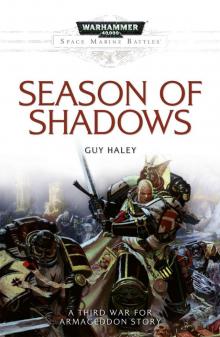 Season of Shadows - Guy Haley
Season of Shadows - Guy Haley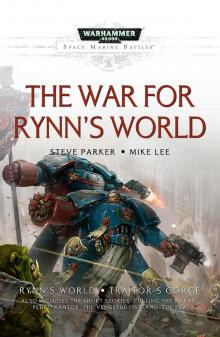 The War for Rynn's World - Steve Parker & Mike Lee
The War for Rynn's World - Steve Parker & Mike Lee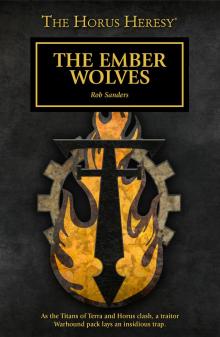 The Ember Wolves - Rob Sanders
The Ember Wolves - Rob Sanders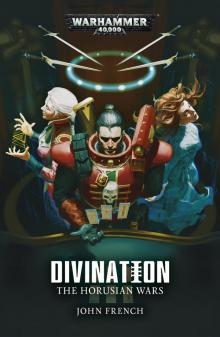 Divination - John French
Divination - John French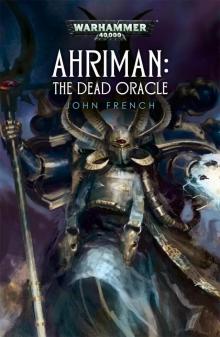 The Dead Oracle - John French
The Dead Oracle - John French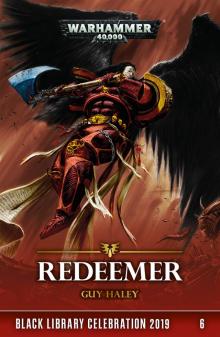 Redeemer - Guy Haley
Redeemer - Guy Haley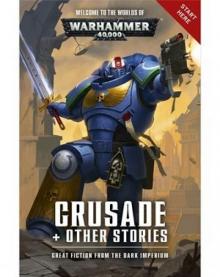 Crusade & Other Stories - Dan Abnett Et Al.
Crusade & Other Stories - Dan Abnett Et Al.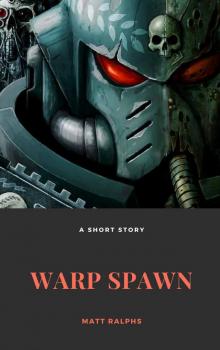 Warp Spawn - Matt Ralphs
Warp Spawn - Matt Ralphs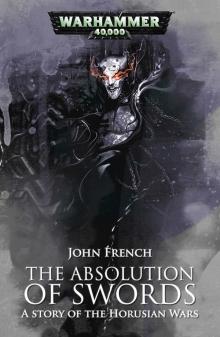 The Absolution of Swords - John French
The Absolution of Swords - John French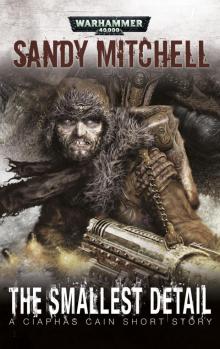 The Smallest Detail - Sandy Mitchell
The Smallest Detail - Sandy Mitchell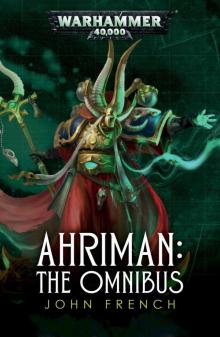 The Omnibus - John French
The Omnibus - John French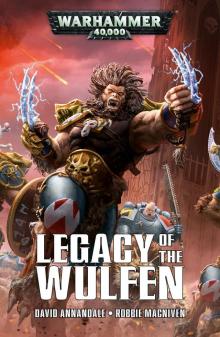 Legacy of the Wulfen - David Annandale & Robbie MacNiven
Legacy of the Wulfen - David Annandale & Robbie MacNiven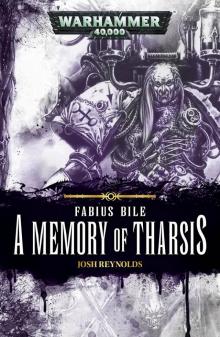 A Memory of Tharsis - Josh Reynolds
A Memory of Tharsis - Josh Reynolds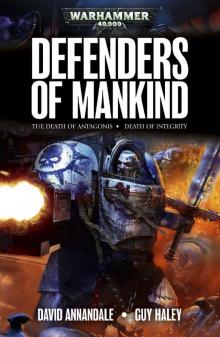 Defenders of Mankind - David Annandale & Guy Haley
Defenders of Mankind - David Annandale & Guy Haley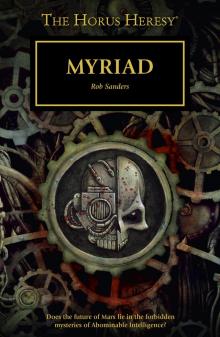 Myriad - Rob Sanders
Myriad - Rob Sanders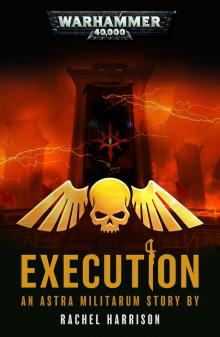 Execution - Rachel Harrison
Execution - Rachel Harrison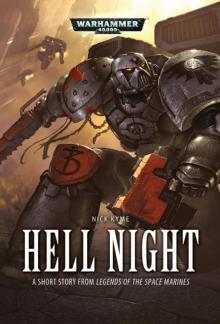 Hell Night - Nick Kyme
Hell Night - Nick Kyme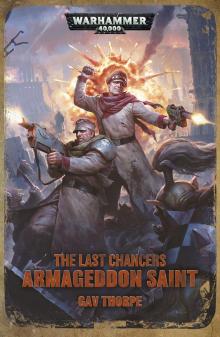 Armageddon Saint - Gav Thorpe
Armageddon Saint - Gav Thorpe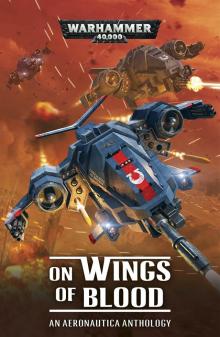 On Wings of Blood
On Wings of Blood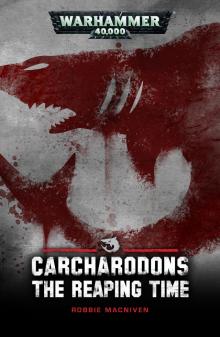 The Reaping Time - Robbie MacNiven
The Reaping Time - Robbie MacNiven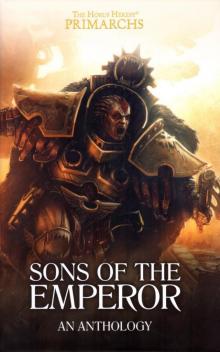 Sons of the Emperor
Sons of the Emperor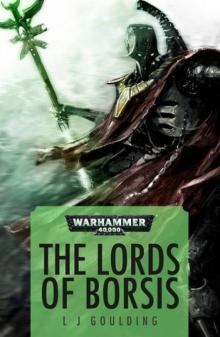 The Lords of Borsis - L J Goulding
The Lords of Borsis - L J Goulding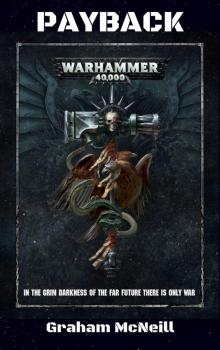 Payback - Graham McNeill
Payback - Graham McNeill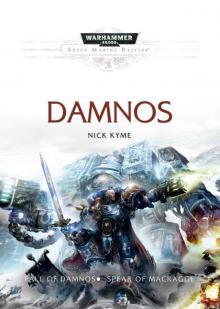 Damnos - Nick Kyme
Damnos - Nick Kyme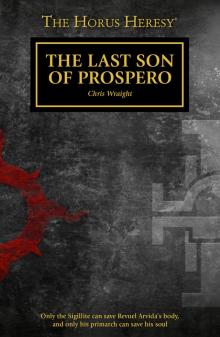 The Last Son of Prospero - Chris Wraight
The Last Son of Prospero - Chris Wraight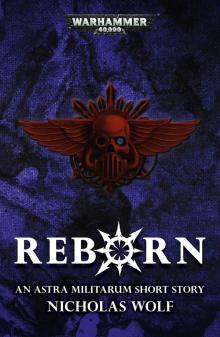 Reborn - Nicholas Wolf
Reborn - Nicholas Wolf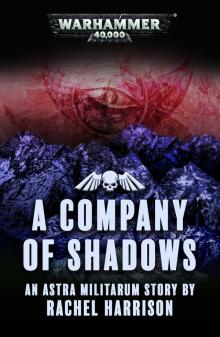 A Company of Shadows - Rachel Harrison
A Company of Shadows - Rachel Harrison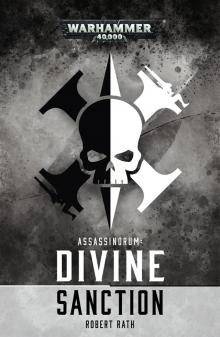 Assassinorum- Divine Sanction - Robert Rath
Assassinorum- Divine Sanction - Robert Rath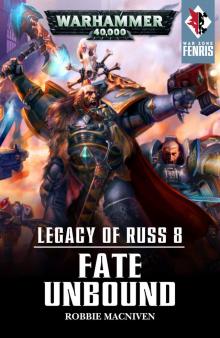 Fate Unbound - Robbie MacNiven
Fate Unbound - Robbie MacNiven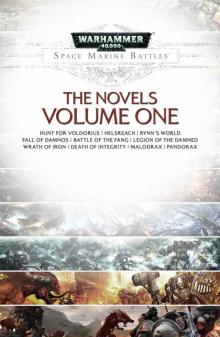 Space Marine Battles - the Novels Volume 1
Space Marine Battles - the Novels Volume 1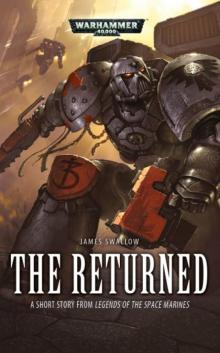 The Returned - James Swallow
The Returned - James Swallow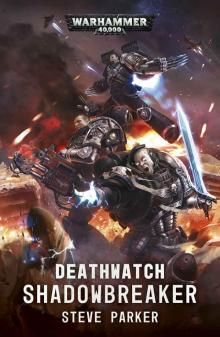 Shadowbreaker - Steve Parker
Shadowbreaker - Steve Parker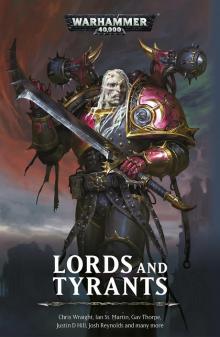 Lords and Tyrants
Lords and Tyrants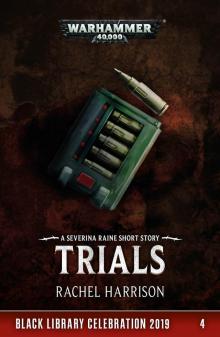 Trials - Rachel Harrison
Trials - Rachel Harrison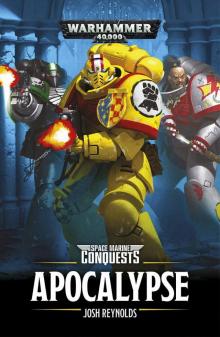 Apocalypse - Josh Reynolds
Apocalypse - Josh Reynolds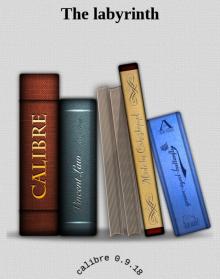 The labyrinth - Richard Ford
The labyrinth - Richard Ford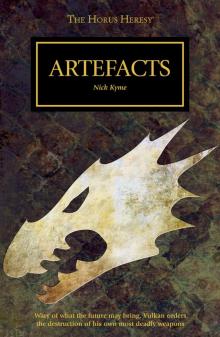 Artefacts - Nick Kyme
Artefacts - Nick Kyme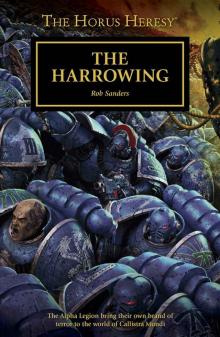 The Harrowing - Rob Sanders
The Harrowing - Rob Sanders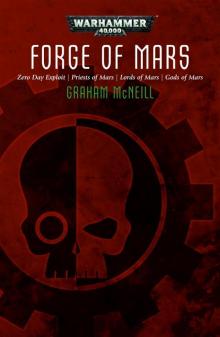 Forge of Mars - Graham McNeill
Forge of Mars - Graham McNeill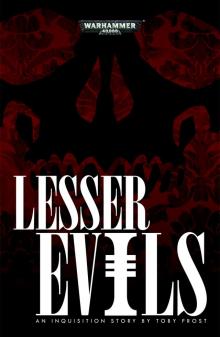 Lesser Evils - Toby Frost
Lesser Evils - Toby Frost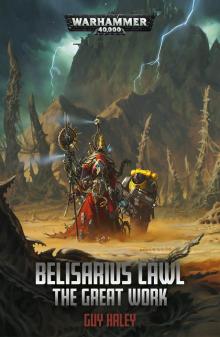 Belisarius Cawl- the Great Work - Guy Haley
Belisarius Cawl- the Great Work - Guy Haley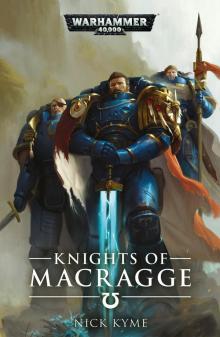 Knights of Macragge - Nick Kyme
Knights of Macragge - Nick Kyme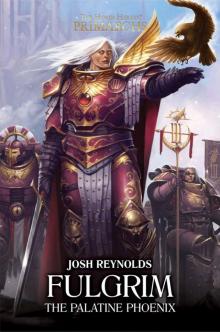 Fulgrim- The Palatine Phoenix - Josh Reynolds
Fulgrim- The Palatine Phoenix - Josh Reynolds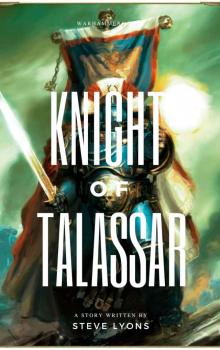 Knight of Talassar - Steve Lyons
Knight of Talassar - Steve Lyons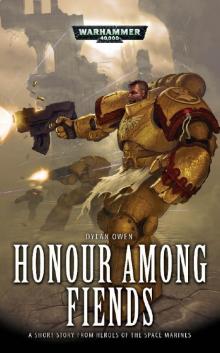 Honour Among Fiends - Dylan Owen
Honour Among Fiends - Dylan Owen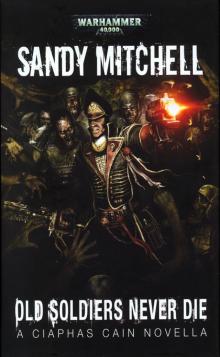 Old Soldiers Never Die - Sandy Mitchell
Old Soldiers Never Die - Sandy Mitchell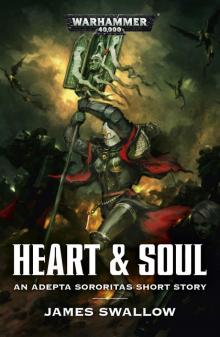 Heart & Soul - James Swallow
Heart & Soul - James Swallow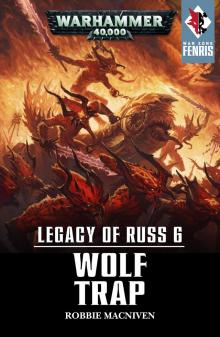 Wolf Trap - Robbie MacNiven
Wolf Trap - Robbie MacNiven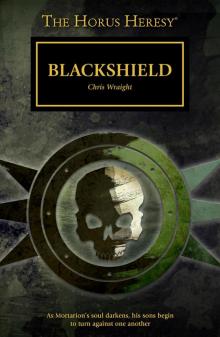 Blackshield - Chris Wraight
Blackshield - Chris Wraight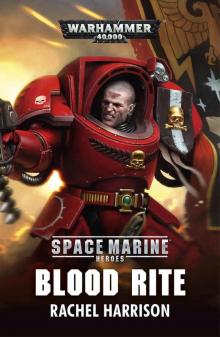 Blood Rite - Rachel Harrison
Blood Rite - Rachel Harrison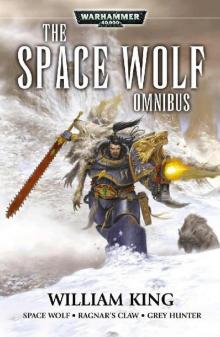 The Space Wolf Omnibus - William King
The Space Wolf Omnibus - William King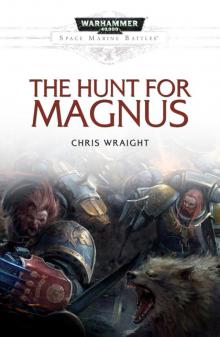 The Hunt for Magnus - Chris Wraight
The Hunt for Magnus - Chris Wraight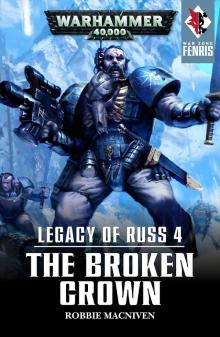 The Broken Crown - Robbie MacNiven
The Broken Crown - Robbie MacNiven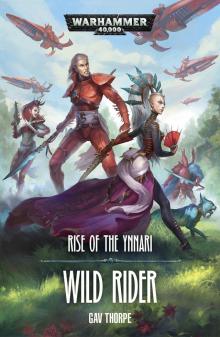 Wild Rider - Gav Thorpe
Wild Rider - Gav Thorpe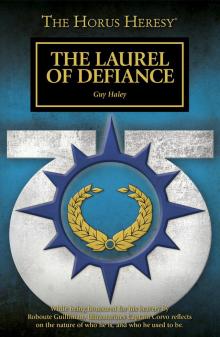 The Laurel of Defiance - Guy Haley
The Laurel of Defiance - Guy Haley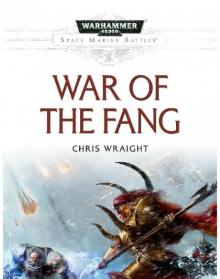 War of the Fang - Chris Wraight
War of the Fang - Chris Wraight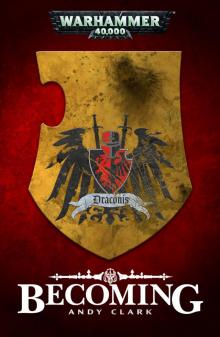 Becoming - Andy Clark
Becoming - Andy Clark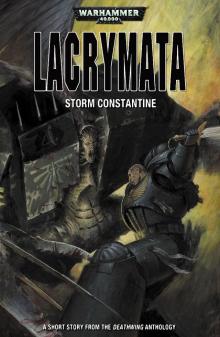 Lacrymata - Storm Constantine
Lacrymata - Storm Constantine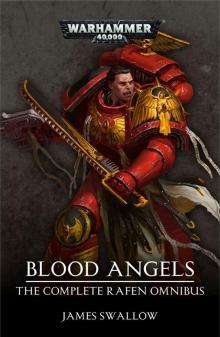 Blood Angels - The Complete Rafen Omnibus - James Swallow
Blood Angels - The Complete Rafen Omnibus - James Swallow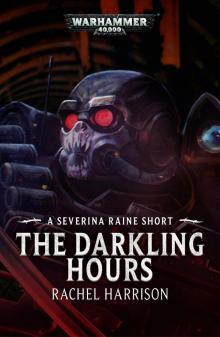 The Darkling Hours - Rachel Harrison
The Darkling Hours - Rachel Harrison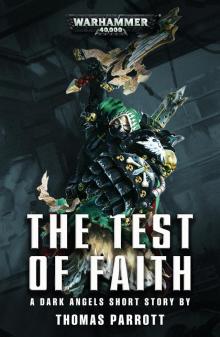 The Test of Faith - Thomas Parrott
The Test of Faith - Thomas Parrott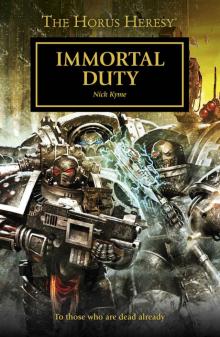 Immortal Duty - Nick Kyme
Immortal Duty - Nick Kyme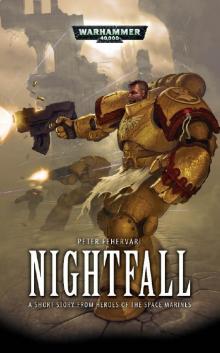 Nightfall - Peter Fehervari
Nightfall - Peter Fehervari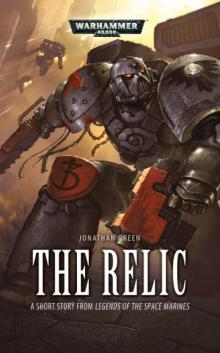 The Relic - Jonathan Green
The Relic - Jonathan Green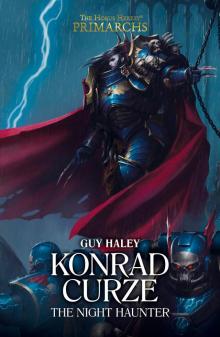 Konrad Curze the Night Haunter - Guy Haley
Konrad Curze the Night Haunter - Guy Haley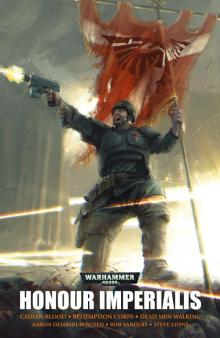 Honour Imperialis - Aaron Dembski-Bowden
Honour Imperialis - Aaron Dembski-Bowden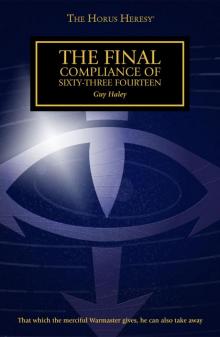 The Final Compliance of Sixty-Three Fourteen - Guy Haley
The Final Compliance of Sixty-Three Fourteen - Guy Haley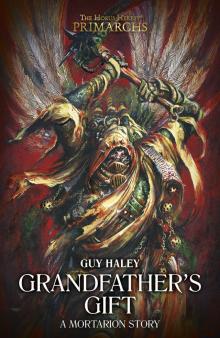 Grandfather’s Gift - Guy Haley
Grandfather’s Gift - Guy Haley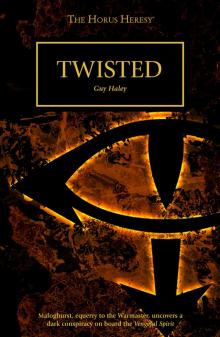 Twisted - Guy Haley
Twisted - Guy Haley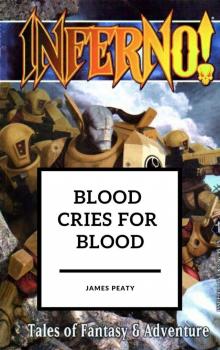 Blood Cries for Blood - James Peaty
Blood Cries for Blood - James Peaty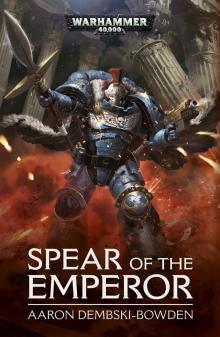 Spear of the Emperor - Aaron Dembski-Bowden
Spear of the Emperor - Aaron Dembski-Bowden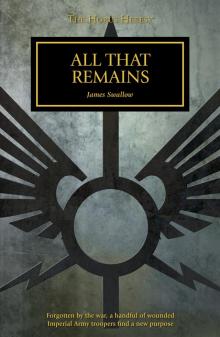 All That Remains - James Swallow
All That Remains - James Swallow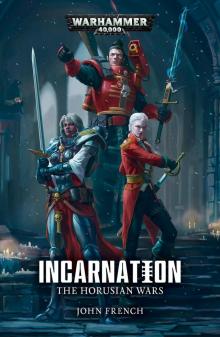 Incarnation - John French
Incarnation - John French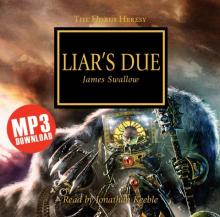 Liar's Due - Ben Swallow
Liar's Due - Ben Swallow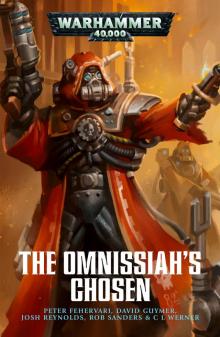 The Omnissiah's Chosen - Peter Fehervari
The Omnissiah's Chosen - Peter Fehervari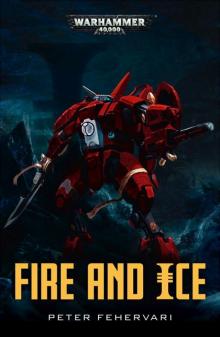 Fire and Ice - Peter Fehervari
Fire and Ice - Peter Fehervari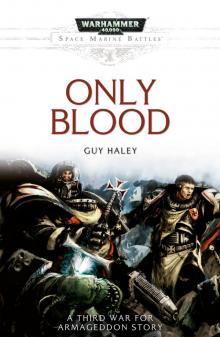 Only Blood - Guy Haley
Only Blood - Guy Haley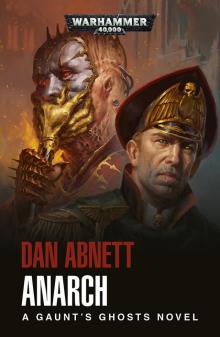 Anarch - Dan Abnett
Anarch - Dan Abnett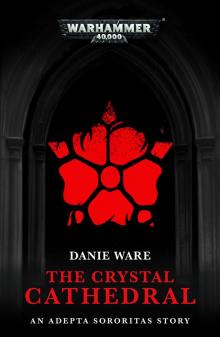 The Crystal Cathedral - Danie Ware
The Crystal Cathedral - Danie Ware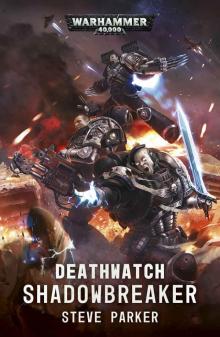 Shadowbreaker
Shadowbreaker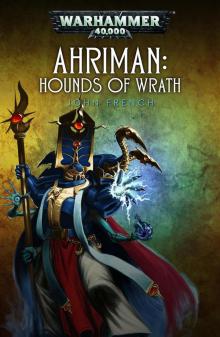 Hounds of Wrath - John French
Hounds of Wrath - John French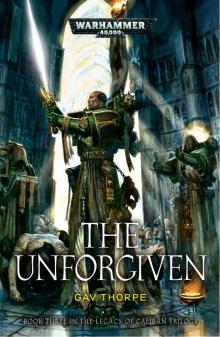 The Unforgiven - Gav Thorpe
The Unforgiven - Gav Thorpe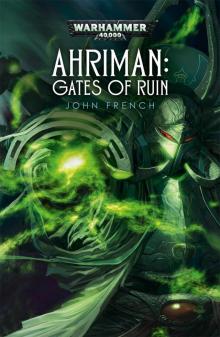 Gates of Ruin - John French
Gates of Ruin - John French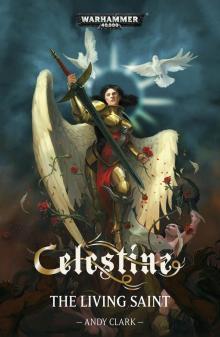 Celestine - Andy Clark
Celestine - Andy Clark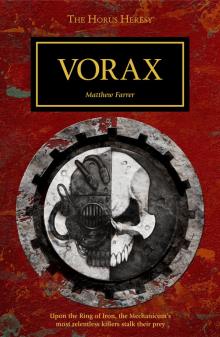 Vorax - Matthew Farrer
Vorax - Matthew Farrer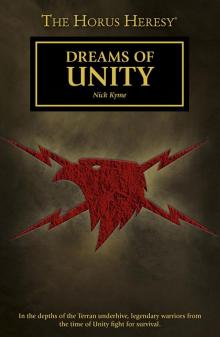 Dreams of Unity - Nick Kyme
Dreams of Unity - Nick Kyme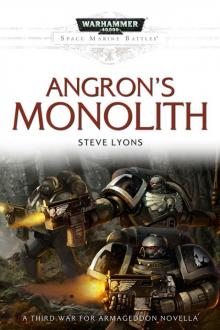 Angron's Monolith - Steve Lyons
Angron's Monolith - Steve Lyons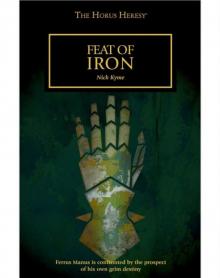 Feat of Iron - Nick Kyme
Feat of Iron - Nick Kyme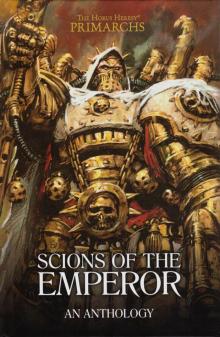 Scions of the Emperor
Scions of the Emperor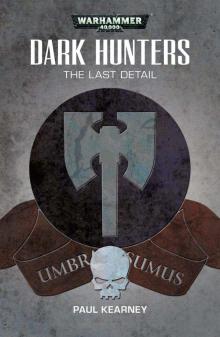 The Last Detail - Paul Kearney
The Last Detail - Paul Kearney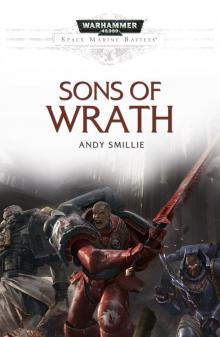 Sons of Wrath - Andy Smillie
Sons of Wrath - Andy Smillie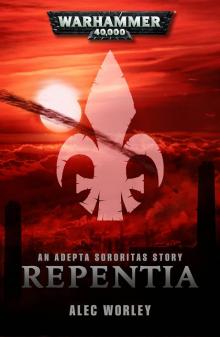 Repentia - Alec Worley
Repentia - Alec Worley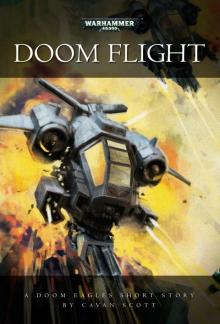 Doom Flight - Cavan Scott
Doom Flight - Cavan Scott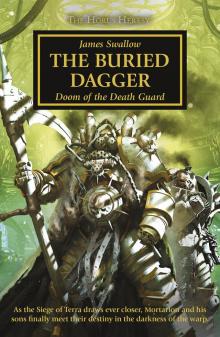 The Buried Dagger - James Swallow
The Buried Dagger - James Swallow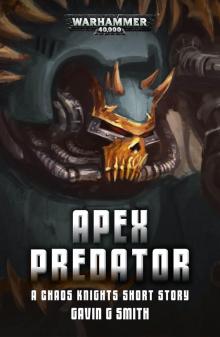 Apex Predator - Gavin G Smith
Apex Predator - Gavin G Smith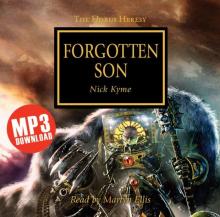 Forgotten Sons - Nick Kyme
Forgotten Sons - Nick Kyme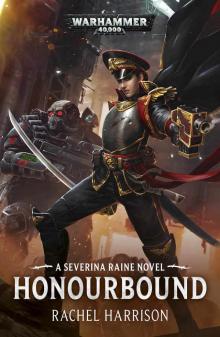 Honourbound - Rachel Harrison
Honourbound - Rachel Harrison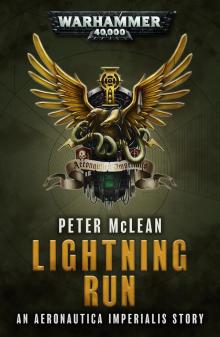 Lightning Run - Peter McLean
Lightning Run - Peter McLean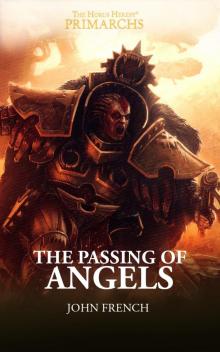 The Passing of Angels - John French
The Passing of Angels - John French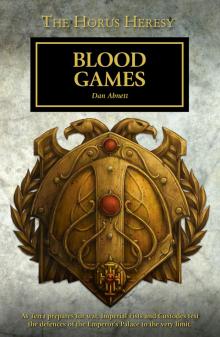 Blood Games - Dan Abnett
Blood Games - Dan Abnett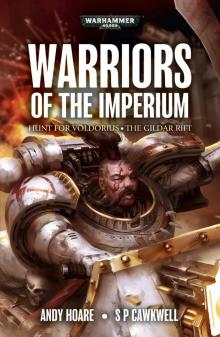 Warriors of the Imperium - Andy Hoare & S P Cawkwell
Warriors of the Imperium - Andy Hoare & S P Cawkwell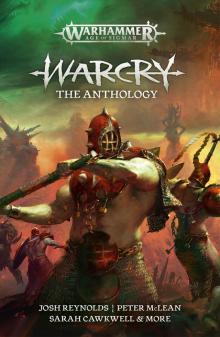 Warcry
Warcry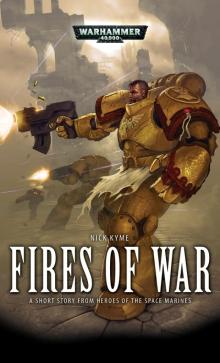 Fires of War - Nick Kyme
Fires of War - Nick Kyme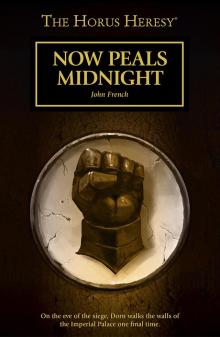 Now Peals Midnight - John French
Now Peals Midnight - John French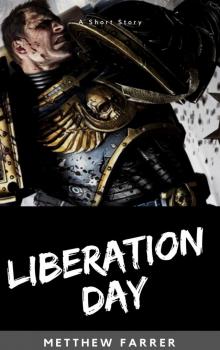 Liberation Day - Matthew Farrer
Liberation Day - Matthew Farrer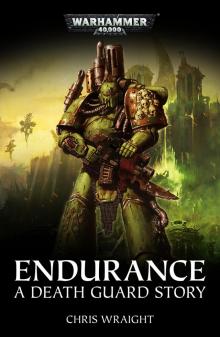 Endurance - Chris Wraight
Endurance - Chris Wraight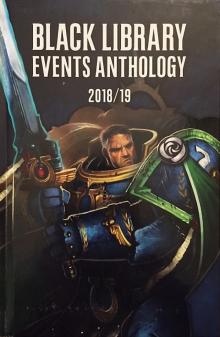 Black Library Events Anthology 2018-19
Black Library Events Anthology 2018-19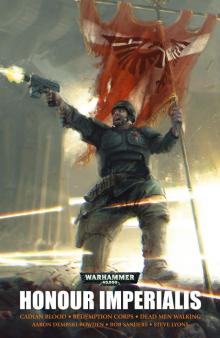 Honour Imperialis - Braden Campbell & Aaron Dembski-Bowden & Chris Dows & Steve Lyons & Rob Sanders
Honour Imperialis - Braden Campbell & Aaron Dembski-Bowden & Chris Dows & Steve Lyons & Rob Sanders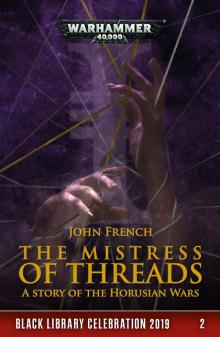 The Mistress of Threads - John French
The Mistress of Threads - John French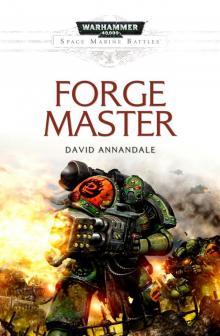 Forge Master - David Annandale
Forge Master - David Annandale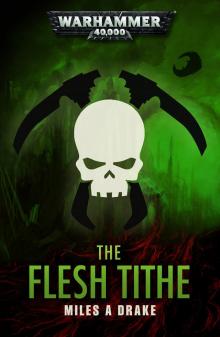 The Flesh Tithe - Miles A Drake
The Flesh Tithe - Miles A Drake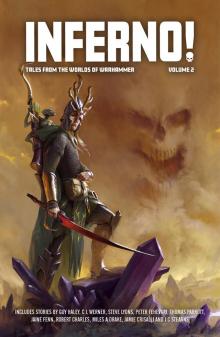 Inferno Volume 2 - Guy Haley
Inferno Volume 2 - Guy Haley Mercy of the Dragon - Nick Kyme
Mercy of the Dragon - Nick Kyme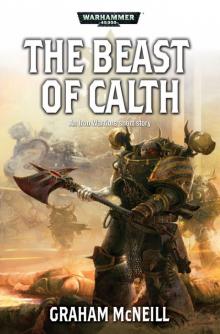 The Beast of Calth - Graham McNeill
The Beast of Calth - Graham McNeill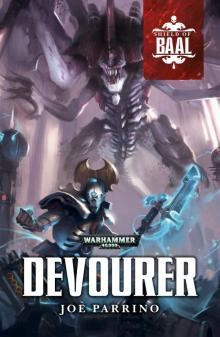 Devourer - Joe Parrino
Devourer - Joe Parrino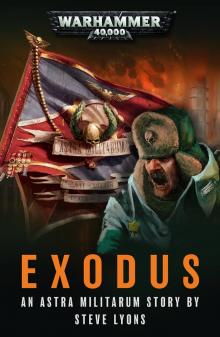 Exodus - Steve Lyons
Exodus - Steve Lyons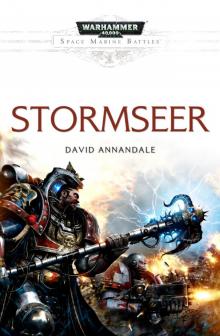 Stormseer - David Annandale
Stormseer - David Annandale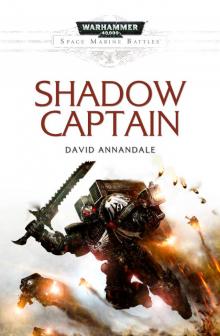 Shadow Captain - David Annandale
Shadow Captain - David Annandale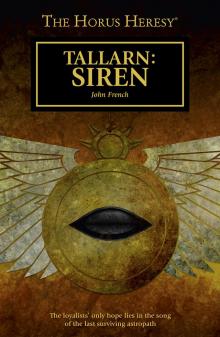 Tallarn- Siren - John French
Tallarn- Siren - John French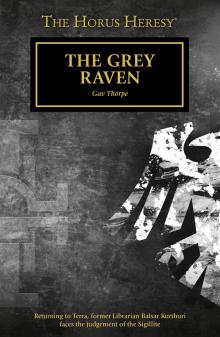 The Grey Raven - Gav Thorpe
The Grey Raven - Gav Thorpe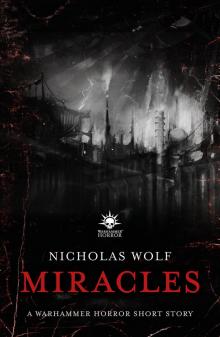 Miracles - Nicholas Wolf
Miracles - Nicholas Wolf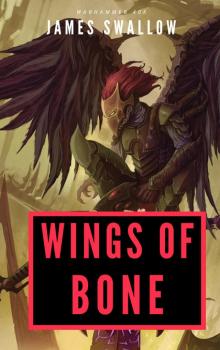 Wings of Bone - James Swallow
Wings of Bone - James Swallow